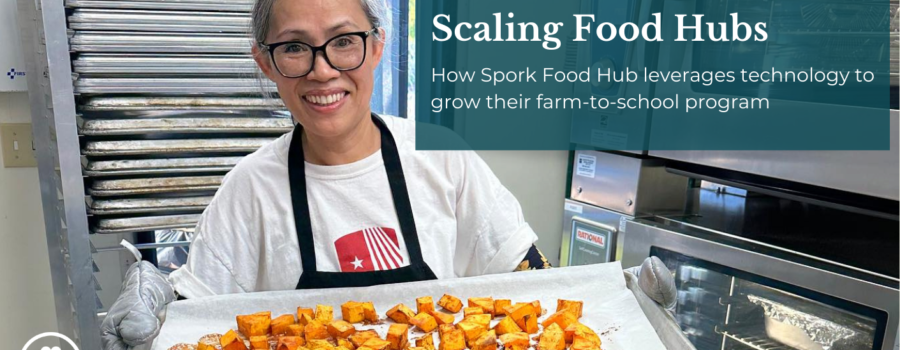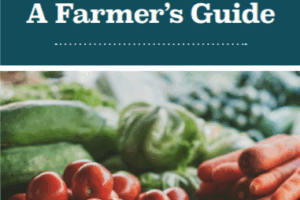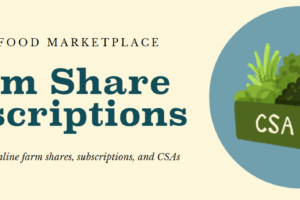About Spork Food Hub
Spork Food Hub was founded in the summer of 2021 by Hope Sippola and Shayne Zurilgen of Fiery Ginger Farm. In under three years, Spork Food Hub has successfully partnered with over 50 local, sustainable, family-owned farms and works with over 25 farm-to-school programs, universities, and prisons.
Spork’s mission is simple: to improve school food. But the path there isn’t necessarily that simple. That’s why Spork Food Hub started using Local Food Marketplace’s food hub software to make things as easy as possible. In this blog post, we’ll explore how Spork Food Hub leverages technology to successfully scale within the farm-to-school market. Also, don’t miss our case study on Spork Food Hub!
Challenges Spork Food Hub Encountered with Scaling
A common challenge encountered in farm-to-school programs is keeping track of it all: product availability from numerous farms, sales for dozens of schools, government reimbursements, payment processing, and more. Doing all of these processes by hand takes a lot of time and is not scalable. The hub needed help managing it all, and that’s where Local Food Marketplace came in.
How LFM Helps Spork Solve These Challenges
Before LFM, Spork was calling schools to sell produce, calling farms to check availability, and then tracking it all in spreadsheets. After bringing the hub online through LFM, Spork saved numerous hours every week by cutting these processes out.
Using technology benefits everyone:
- Farms can log their availability and set it to be the same every week — in turn, they can sell more product by keeping their inventory up to date.
- Spork does not have to call each farm and edit the availability themselves every week.
- Farm-to-school program can order exactly what they want through filtering by the type of food, producer, product attributes (like Certified Organic), and more.
- Spork does not have to call each individual farm-to-school program to sell product.
- There is even a dashboard built into the software to download the files needed to simplify farm-to-school reimbursements.
By utilizing technology like LFM, Spork saves countless hours which gave them the time, energy, and organizational processes to add additional farm-to-school programs and farms to their network.
Before LFM, Spork was doing everything by hand: Calling farms to get availability then calling schools to sell stuff. That doesn’t scale very well. Using LFM to put all these pieces together saves a lot of time.” —Jacob Weiss, General Manager of Spork Food Hub
Learn more about Spork Food Hub’s success.
Read the Spork Food Hub Case Study
Where Spork Food Hub’s Farm-to-School Program is Today
Since using LFM to manage multi-producer sales and ultimately save hours of time every week, Spork is able to devote more time to focus on scaling up — giving them a wider reach to fulfill their mission. Since 2021, Spork Food Hub has:
- Procured over $2 million of produce from local, sustainable, and family-owned farms.
- Partnered with over 50 local, sustainable, and family-owned farms.
- Added over 25 farm-to-school programs, universities, and prisons to their network.
These dollars directly support farmer livelihoods and enhance their communities. Many of these purchases are from small, historically undeserved farms which we have strived to include as we’ve added new institutional customers.” —Jacob Weiss, General Manager of Spork Food Hub
A Word of Advice from Spork Food Hub

Want more advice from Spork on farm-to-school success?
Read the Spork Food Hub Case Study here!




